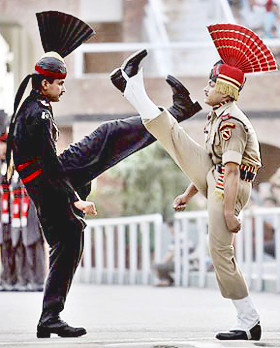Unintended outcomes in foreign policy
Author:?Lawrence Wright. Publisher: The New Yorker. Date: May 16 2011

Excerpt: The United States routinely gives billions of dollars to foreign governments to influence the progress and policies of those governments. Yet the outcomes of those investments are unpredictable, and often the opposite of what we intended. During the Cold War, India was sympathetic to the Soviet Union and so we shunned it, while Pakistan was willing to assume our anti-Communist rhetoric and so we rewarded it:
“It’s the end of the Second World War, and the United States is deciding what to do about two immense, poor, densely populated countries in Asia. America chooses one of the countries, becoming its benefactor. Over the decades, it pours billions of dollars into that country’s economy, training and equipping its military and its intelligence services. The stated goal is to create a reliable ally with strong institutions and a modern, vigorous democracy. The other country, meanwhile, is spurned because it forges alliances with America’s enemies.
“The country not chosen was India, which ’tilted’ toward the Soviet Union during the Cold War. Pakistan became America’s prot?g?, firmly supporting its fight to contain Communism. The benefits that Pakistan accrued from this relationship were quickly apparent: in the nineteen-sixties, its economy was an exemplar. India, by contrast, was a byword for basket case. Fifty years then went by. What was the result of this social experiment?
“India has become the state that we tried to create in Pakistan. It is a rising economic star, militarily powerful and democratic, and it shares American interests. Pakistan, however, is one of the most anti-American countries in the world, and a covert sponsor of terrorism. Politically and economically, it verges on being a failed state. And, despite Pakistani avowals to the contrary, America’s worst enemy, Osama bin Laden, had been hiding there for years – in strikingly comfortable circumstances – before U.S. commandos finally tracked him down and killed him, on May 2nd.
